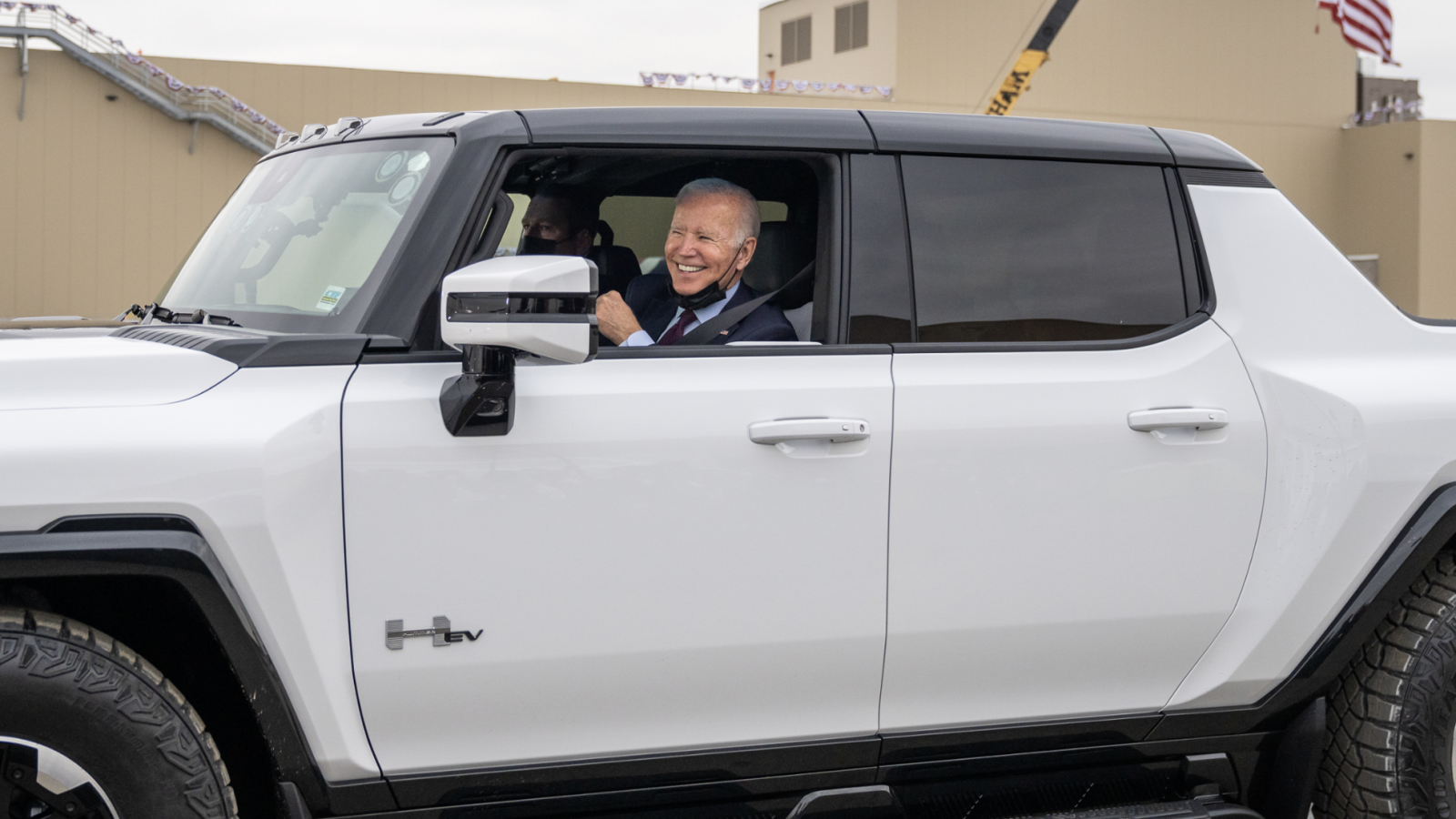Elon Musk might be receiving most of the attention, but he’s not the only one working with DOGE to cut costs at the federal level.
After four years of Joe Biden’s spending spree, a number of Republican lawmakers are using their newfound control of the executive and legislative branches to restore some fiscal sanity to our debt-plagued nation.
One such program ripe for cuts, if not outright elimination, involves Biden’s multibillion-dollar program to establish electric vehicle infrastructure.
In reality, the results were dismal at best — and Sen. Joni Ernst (R-IA) wants to put it out to pasture, as Breitbart reported:
The program, despite its lofty goal of creating a network of charging stations across the nation, only built 59 stations in three years despite $7.5 billion in funding.
“Joe Biden’s green dreams short-circuited, and it is time to pull the plug,” Ernst said in a statement to Breitbart News. “The EV charger boondoggle is a textbook example of wasteand inefficiencythat needs to be eliminated. Instead of spending hundreds of millions per charging station, I am doing something truly revolutionary in Washington – putting taxpayers first.”
Ernst, as the Senate DOGE [Department of Government Efficiency] chair, unveiled a $2 trillion plan, which includes the bill to scrap the funding for electric vehicles, to slash federal spending and reduce the size of the federal government.
The Trump administration in early February had halted the program.
ADVERTISEMENT
Joe Biden’s $7.5 billion EV charger programs resulted in just 59 stations built in three years.
The green dream has short-circuited, and it is time to pull the plug and defund this Biden boondoggle.https://t.co/s7ZbVwC7Ig— Joni Ernst (@SenJoniErnst) February 20, 2025
The ineffective program has also been roundly pilloried on social media:
Any way you fact check Biden's EV charger program, it's a failure: Three years after being given $7.5 billion install EV charging stations, the Biden regime has installed a total of 214 charging ports in 12 states — a charging port serves one car at a time.… pic.twitter.com/Rh9JJD42lM
— Steve Milloy (@JunkScience) November 29, 2024
President Trump is going to inherit a huge pile of 🚮 from the failed Biden presidency.
One of the worst?
Seniors are facing the biggest Medicare drug premium spike in history this month because Democrats took money from the program to fund EV tax credits – then tried to cover… pic.twitter.com/CCifZU7TMg
— Matt Whitlock (@mattdizwhitlock) January 13, 2025
Even Politico was reporting on the utter lack of progress in the Biden administration’s EV program way back in 2023:
Congress at the urging of the Biden administration agreed in 2021 to spend $7.5 billion to build tens of thousands of electric vehicle chargers across the country, aiming to appease anxious drivers while tackling climate change.
Two years later, the program has yet to install a single charger.
States and the charger industry blame the delays mostly on the labyrinth of new contracting and performance requirements they have to navigate to receive federal funds. While federal officials have authorized more than $2 billion of the funds to be sent to states, fewer than half of states have even started to take bids from contractors to build the chargers — let alone begin construction.
Consumer demand for electric vehicles is rising in the United States, necessitating six times as many chargers on its roads by the end of the decade, according to federal estimates. But not a single charger funded by the bipartisan infrastructure law has come online and odds are they will not be able to start powering Americans’ vehicles until at least 2024.
Here’s some relevant “Fox & Friends” commentary from last year:



Join the conversation!
Please share your thoughts about this article below. We value your opinions, and would love to see you add to the discussion!